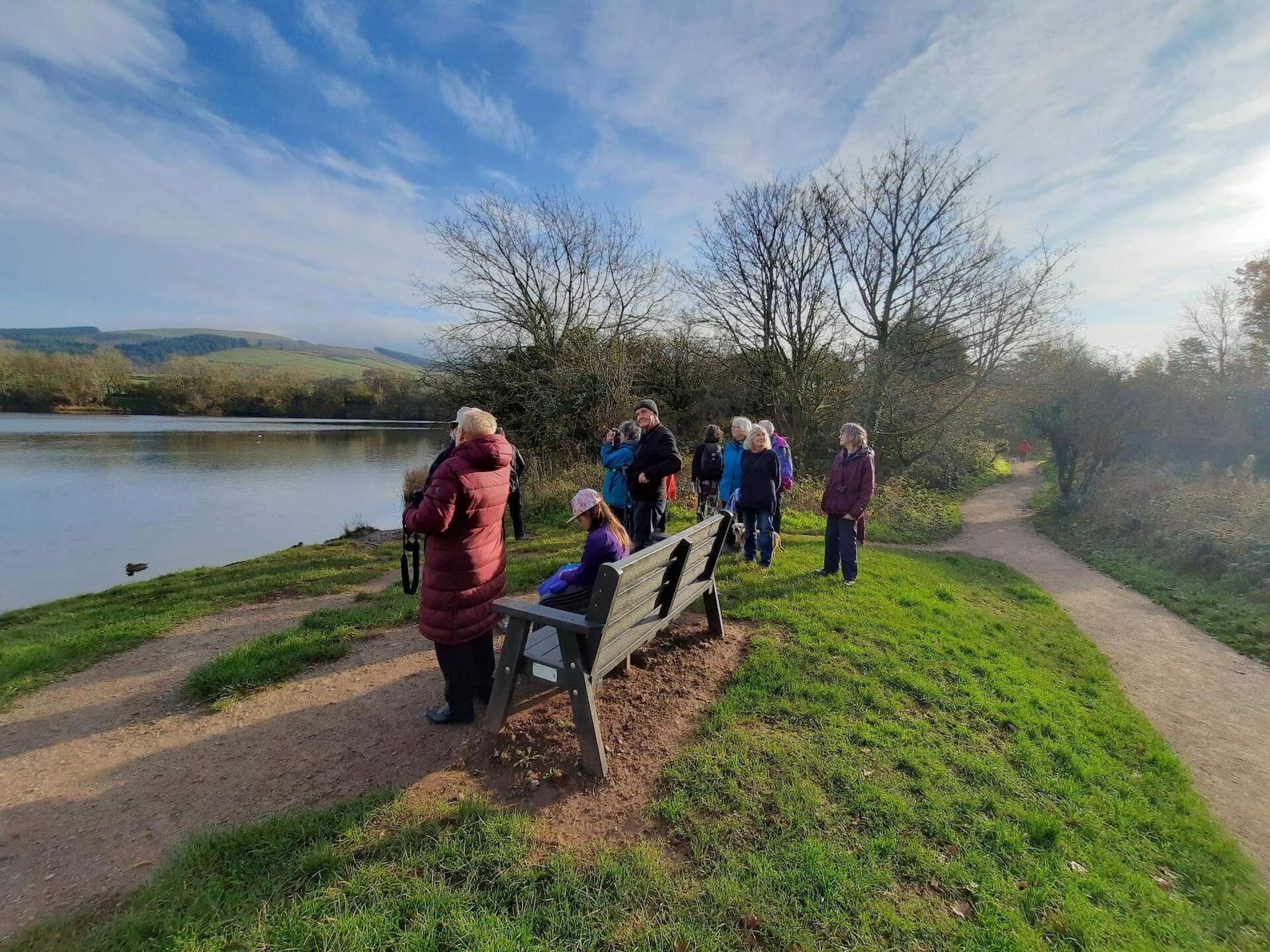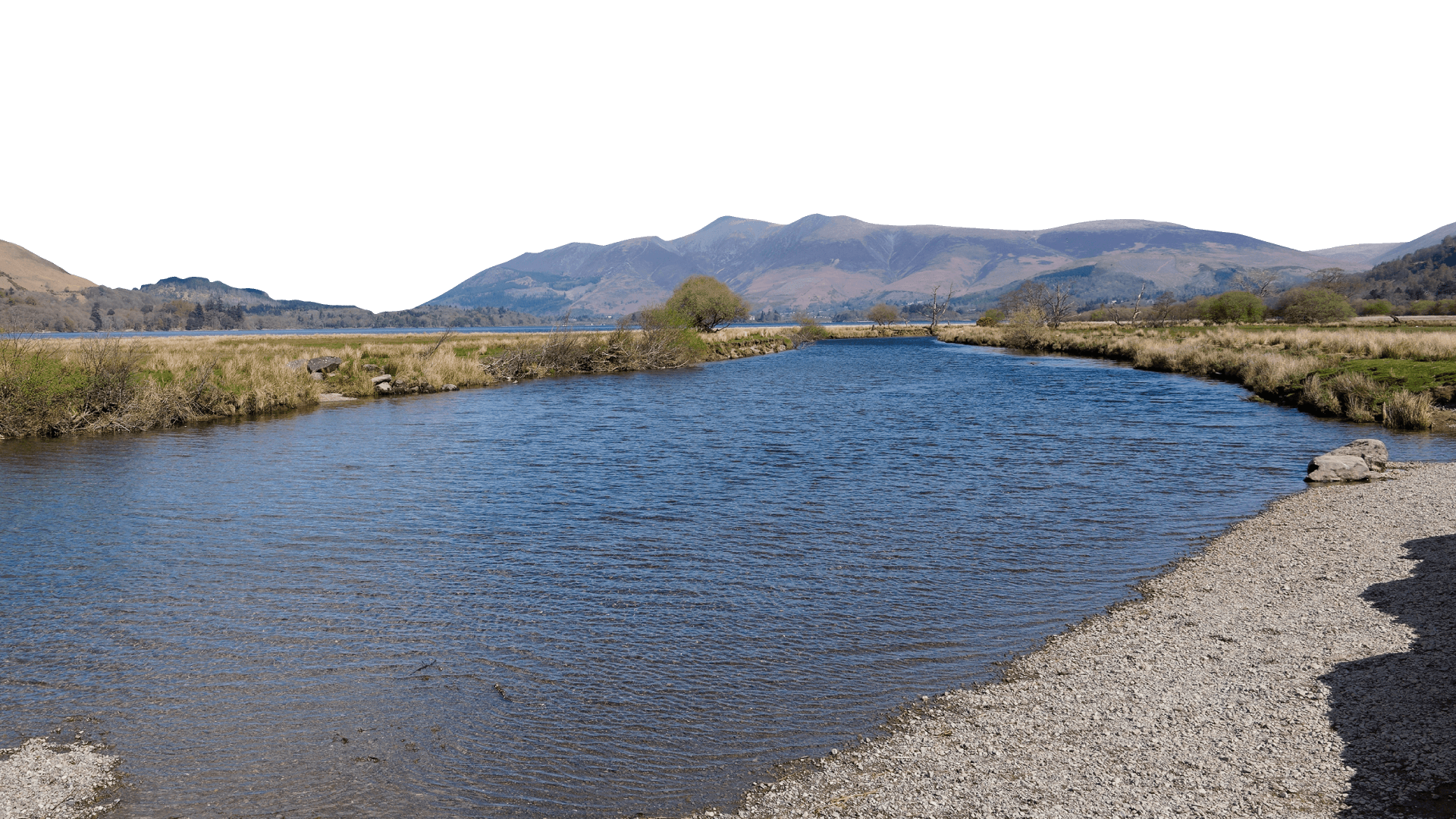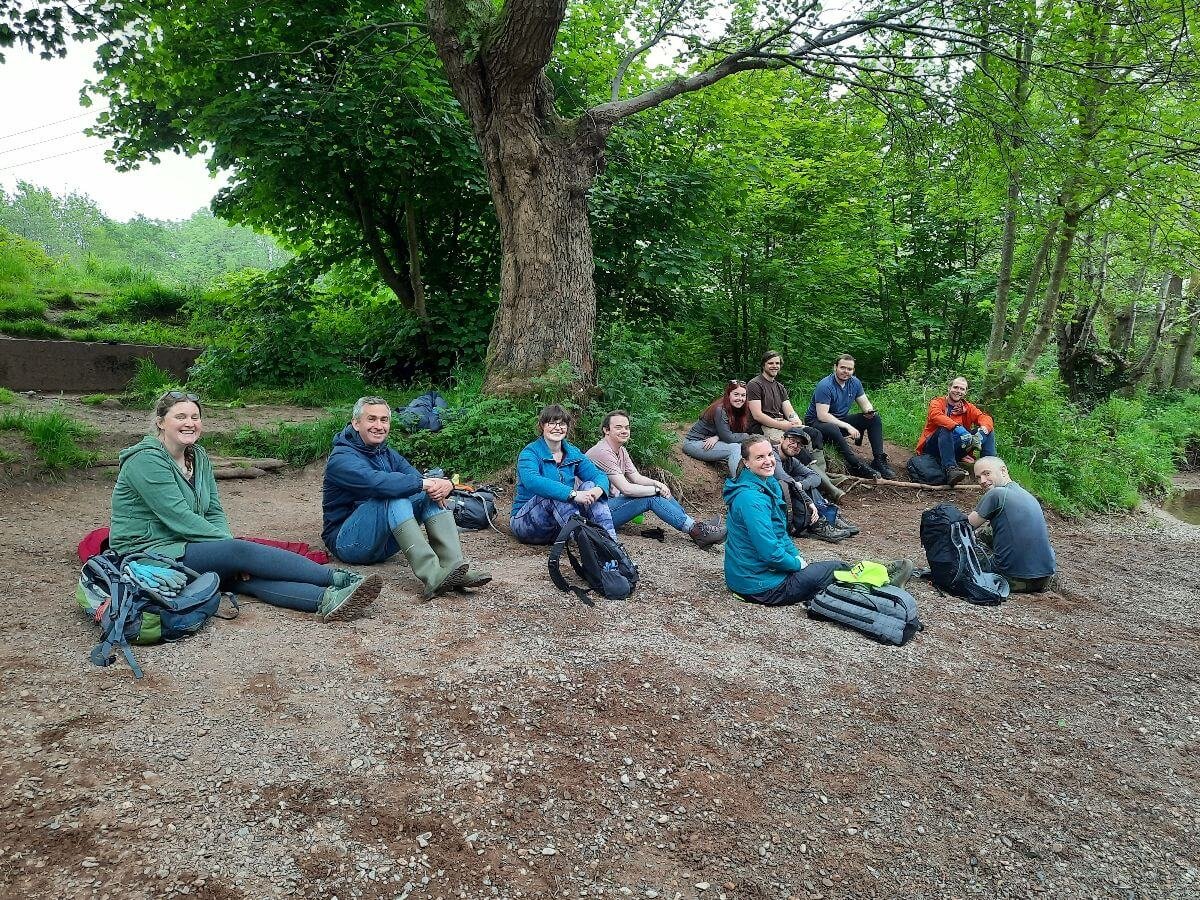
Longlands Lake
Longlands Lake Country Park is owned by Cumberland Council and is a much-loved community space and valuable wildlife asset close to Cleator Moor. The site was a former Iron Ore mine that flooded, and the lake is now a stocked fishing pond, leased by Wath Brow Anglers.
The project aims to improve water quality and habitat on the River Keekle (focussing on the section of river from Keekle Bridge to the confluence of the River Ehen) through working with landowners and farmers. At Longlands Lake, the focus has been on enhancing the natural environment for wildlife, and engaging local communities in nature based activities.
At the centre of our work is Education and community; we work with local schools and families. During term time, we deliver Forest School sessions weekly at Longlands lake and over the school holidays, we deliver nature-based family activities on-site.
Some of the physical works delivered by the project include:
Riverbank stabilisation work on the River Ehen and reducing erosion using willow pegs on the River Keekle.
Tree surveys and management
Raking gravels on tributaries for improved spawning habitat
Livestock fencing and associated works, including solar powered troughs.
New outdoor education areas, including a new wildlife pond with a pond-dipping platform, and a Forest Schools area
Access for all paths around Longlands lake and improved seating areas
Creating a Wildflower area as part of our Planting for Pollinators work
Creating living willow hides
Community events and activities have included:
Regular Himalayan balsam bashing volunteer events
Navigation Skills and geocaching
Guided nature walks, including Dawn Chorus, Bird ID, Amphibian walk, bat walk,
Wildflower seed, plug planting and tree planting
Creating Living Willow hides
Riverfly training, family riverdipping and river walks
Creating wildlife homes and bird boxes
Angling participation session events
Annual celebrations include: World Environment Day, World Rivers Day and Longlands Christmas Weekend
Ongoing work at Longlands Lake includes:
Fish surveys and river monitoring
Invasive Species Management
Tree assessment and management
Willow pegging for bank erosion
Working with the local community and partners to develop interpretation, information boards and trails at Longlands
Meeting with farmers, landowners and contractors to discuss work that could improve livestock management and benefit freshwater habitats.
Our education offering includes:
Regular Forest School sessions
Wildlife clubs delivered in schools
Bespoke nature related activities for secondary schools, youth groups and young people outside formal education
Improving wildlife areas in schools
Supporting schools to become National Education Nature Parks
Working with educational support services to deliver holiday activities
If you would like to volunteer in the area, sign-up and look for activities at Longlands Lake or Keekle Catchment.
For more information, email Project Officer Karin Crofts.
Project funders & partners










